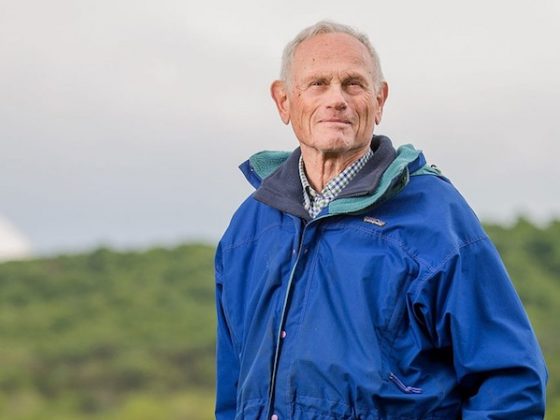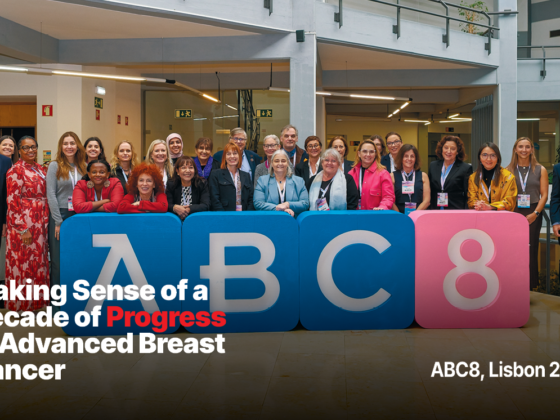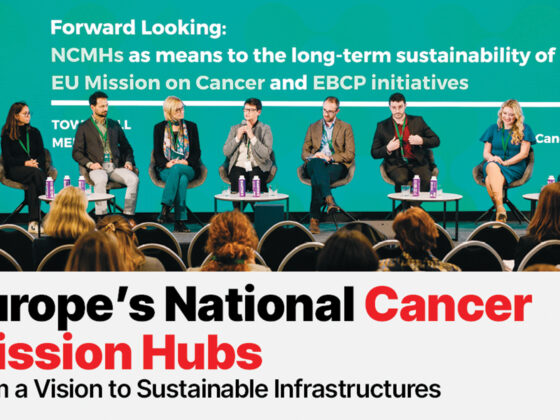The first voluntary licence for a patented cancer medicine was signed last month on the fringes of the 2022 World Cancer Congress in Geneva.
The agreement between the pharmaceutical company Novartis and the Medicines Patent Pool – a UN backed public health organisation – will allow manufacturers to produce generic versions of nilotinib, a cancer medicine used to treat people with chronic myeloid leukaemia (CML) who are resistant to, or cannot tolerate, imatinib (Glivec).
It follows the example of similar voluntary licences that have been negotiated with the Medicines Patent Pool in other disease areas such as HIV/AIDS and hepatitis C, and is expected to result in widening access to the drug among patients in low-income, and even some lower-middle income, countries.
The nilotinib agreement was brokered within the context of the Access to Oncology Medicines (ATOM) project set up earlier this year by the Union for International Cancer Control.
“This is the first time that we’re seeing that this voluntary licence model can be adapted and applied to cancer,” Melissa Rendler-Garcia, ATOM Coalition Project Leader, told Cancerworld. “It allows for a reduction in price sometimes by over 50–90%, which is translated into being able to be accessible and affordable for patients, particularly in low income countries,” she said.
“When you look at the Medicines Patent Pool, and you look at what they’ve been able to do for access to HIV medicines and TB – that model has worked very well, to make sure that those medicines are easily accessible and very cheaply. We want to do the same for cancer and this is the first time that that’s going to happen,” she said. “We are going to use that as an example to keep on really working with the private sector, the industry, big pharma to be able to negotiate with other voluntary licences for other medicines in the future.”
“That model has worked very well for access to HIV medicines and TB. We want to do the same for cancer”
Charles Gore, executive director of the Medicines Patent Pool, welcomed the opportunity to add a cancer drug to the list of treatments for which voluntary licences have been agreed. “Access to high-quality cancer medicines is a crucial component of the global health response to the cancer burden, therefore I am delighted to be signing our first licence agreement with Novartis for a much-needed cancer treatment in low- and middle-income countries. Although the remaining patent life is relatively short, this voluntary licence in the non-communicable disease space sets a vital precedent that I hope other companies will follow.”
The agreement has been welcomed by Pat Garcia Gonzalez, founder and CEO of the Max Foundation, an international advocacy group that for the past 25 years has been supporting CML patients across the globe and helping them access the treatment they need.
“There is a very critical problem for access to CML treatment and diagnostics in low-and middle-income countries, and all creative strategies are needed to improve the situation,” she says.
“Generic manufacturers will need to come forward to produce and deliver these drugs, and patients will need to be able to afford them”
“Innovation in creating availability to medicines is critical and this first voluntary licensing of a cancer drug is an important step for industry. We hope it will encourage more pharmaceutical companies to innovate and consider new ways to help all patients get the medicines they need,” she says.
She warns, however, that the agreement will only make a difference if it results in more and cheaper generics actually making it to the market. “For this approach to succeed in helping CML patients, we will need generic manufacturers to come forward to utilise the license to produce, contract and deliver nilotinib, and understand that many governments in the low-income world are not prepared to procure these drugs so patients will need to be able to afford them.”
‘Affordable’ in the case of nilotinib means affordable within the everyday family budget, as the drug – as with all CML tyrosine kinase inhibitors – will generally have to be taken for the patient’s entire lifetime.
John Collins Kamili is executive director and chief pharmacist at Cipla Quality Chemical Industries, one of the largest pharmaceutical manufacturers in sub-Saharan Africa, located in Kampala, Uganda, which manufactures generic drugs for a number of indications including HIV/AIDS, malaria and hepatitis. Currently it produces no cancer drugs – but that is set to change, with the opening of a planned new oncology facility, says Kamili.
He points out that oncology treatments are among the most dynamic in terms of research and new medicines, and that most cancer drugs are therefore currently under patent protection. Even in low-income countries like Uganda, which are able to use certain exemptions to the World Trade Organization TRIPS (Trade-Related Aspects of Intellectual Property Rights) agreement, access to technology to manufacture generic cancer drugs is very difficult, he says. “So voluntary licensing is the quickest way to close the technology gap.”
Cipla is already manufacturing antiretroviral drugs for HIV under a Medicines Patent Pool arrangement, with these generic drugs being restricted to markets in ‘least developed countries’ (as designated by the UN).
For Dennis Olodi, Ag. Executive Director of the Uganda Cancer Society, it is the prospect of enouraging production at local levels that he sees as offering the greatest impact on improving access to cancer medicines. “Cancer services are over centralised. If this licensing will cater for devolution of medicines to the lower facilities, then it will go a long way in bridging drug delivery gaps,” he says. “It will help support the existing procurement and medicine supply systems.”
“If this licensing will cater for devolution of medicines to the lower facilities, it will go a long way in bridging drug delivery gaps”
There may be limits, however, to how far the patent pooling model that has delivered well for HIV and other diseases can work for cancer. A survey published in the Lancet Oncology at the end of 2021 showed that the priority drugs listed by oncologists working in low and lower-middle income countries – the ones they felt would help them deliver the most for their patients – were primarily not the more recent drugs that are still protected by patents. What they want – and often lack – are the basic chemotherapy ‘workhorse’ drugs: anthracyclines, taxanes, platinum drugs, alkylating agents. Despite these having been off-patent for years, even decades, access remains hugely challenging.
“Among the top 20 medicines selected by oncologists in low-income and lower-middle-income countries, between 13% and 68% of respondents indicated that accessing each of these drugs placed patients at risk of catastrophic expenditure,“ reported the authors. “This was the case even for older generic cytotoxic drugs such as doxorubicin and cisplatin, with 27% of oncologists reporting a substantial risk of catastrophic financial expenditures for doxorubicin and 21% for cisplatin. Of the top 20 medicines listed for low-income lower-middle-income countries, dexamethasone was the only medication that was universally available for more than 50% of respondents.”
The Lancet study raises questions both about how far access programmes should focus on new generations of cancer drugs, and about assumptions that when a drug comes off patent, affordable generic versions become accessible in lower-income countries. Access to cancer medicine requires manufacturers like Cipla to start supplying affordable generic nilotinib, but also the many other cancer drugs that are at the top of oncologists’ priority lists.












